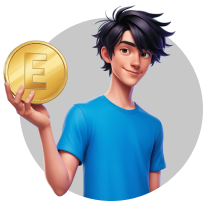Похожие вопросы
R BANK 12A Complete the story with the verbs in (brackets) in the past simple, or . Last summer my family and I went (go) to Italy for a holiday. We (rent) a house in Umbria, in central Italy, about 5 km from a village called Gubbio. (be) fantastic, hot and sunny The weather during the day, but cold at night. We different things every day. Sometimes we to Perugia or Assisi and art galleries. On other days we house. It (do) (go) (visit) churches and (stay) in the (have) a swimming pool in the garden, so the children afternoon an old woman (be) happy. One (arrive) at the door. (say). 'I'm your 'Good afternoon,' she 10 neighbour. Are your children at home?' Yes,' 111 (answer). 'I think so. Why?' 'Because about an hour ago 12 (see) a small boy near the village. I think he was your son.' 13 14 15 (look) out of the window. My daughter (be) in the swimming pool, but my son (not be) there. Where you (see) him?' 117 (ask). 18 you (talk) to him?' 'He was on the road to the village, but I 19 speak) to him,' the old woman (tell) my husband. 'We need to (not (say). 'Come on,' 121 go to the village.' The old woman 22 (wait) at the house with my daughter and we 23 (go) to the village. My son 24 (be) outside a café. He 25 Why 26 you (have) a big ice cream in his hand. I asked him. 'We 27 28 (want) an ice cream,' he said. (leave) the house?' (be) really worried.' p.73
Английский язык 4 класс Прошедшее время (Past Simple) английский язык прошедшее время Глаголы упражнение семья отпуск в Италии история учебные материалы грамматика изучение английского
Давайте вместе заполним пропуски в истории, используя правильные формы глаголов в прошедшем времени. Мы будем использовать Past Simple, чтобы описать действия, которые произошли в прошлом.
Вот как выглядит история с правильными глаголами:
Last summer my family and I went (go) to Italy for a holiday. We rented (rent) a house in Umbria, in central Italy, about 5 km from a village called Gubbio. The weather was (be) fantastic, hot and sunny during the day, but cold at night. We did (do) different things every day. Sometimes we went (go) to Perugia or Assisi and visited (visit) art galleries. On other days we stayed (stay) in the house. It had (have) a swimming pool in the garden, so the children were (be) happy.
One afternoon an old woman arrived (arrive) at the door. 'Good afternoon,' she said (say). 'I'm your neighbour. Are your children at home?' 'Yes,' I answered (answer). 'I think so. Why?' 'Because about an hour ago I saw (see) a small boy near the village. I think he was your son.' I looked (look) out of the window. My daughter was (be) in the swimming pool, but my son was not (not be) there. 'Where did you (see) him?' I asked (ask). 'Did you (talk) to him?' 'He was on the road to the village, but I did not (not say) anything,' the old woman told (tell) my husband. 'We need to go (go) to the village.' The old woman waited (wait) at the house with my daughter and we went (go) to the village. My son was (be) outside a café. He had (have) a big ice cream in his hand. I asked (ask) him. 'Why did you (want) an ice cream?' he said (say). 'We left (leave) the house?' I was (be) really worried.'
Теперь, когда мы заполнили пропуски, вы можете увидеть, как правильно использовать глаголы в прошедшем времени для описания событий в истории!


